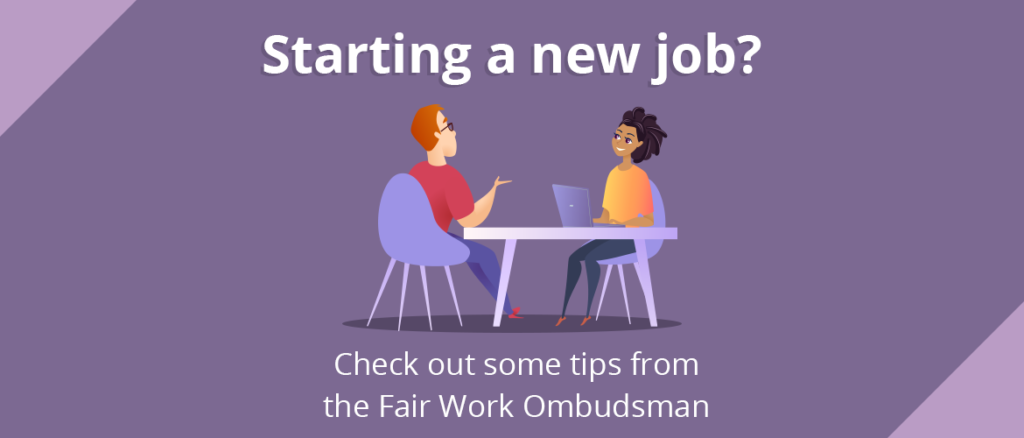International students have the same workplace rights as all other workers in Australia. It is important to understand your workplace rights and entitlements, especially if it’s your first job in Australia.
The Fair Work Ombudsman (FWO) is a government agency that provides advice and assistance about workplace rights and obligations, like minimum pay rates, holiday leave and sick leave. They offer a range of FREE resources and tools, including the Guide to Starting a New Job and the ‘Starting a New Job’ online course at www.fairwork.gov.au/learning.
Here are some tips to help you prepare for your new job.
Things you should know when finding work
Take the time to find an employer that pays correctly and doesn’t try to take advantage of you.
Don’t respond to questionable advertisements where there is only a first name and a mobile number provided. Know who you are working for – ask the question: What is the business name and Australian Business Number (ABN)?
Question why someone is asking you to get an ABN to work for them as a contractor. It’s important to know the difference between being an employee and a contractor.
Know your pay and entitlements
When you start working for a new employer, they must give you a copy of the Fair Work information Statement. This document outlines your rights and entitlements as an employee, and is available in 39 languages.
Australia has a legislated minimum wage. You should be paid at least the minimum wage for all hours that you work. Use the FWO’s Pay and Conditions Tool to work out the minimum wage for the work that you do.
Currently, the National Minimum Wage for adult employees (21 years of age and over) is $19.49 per hour, and $24.36 for casual employees (Note: Minimum wages are reviewed yearly. These rates are current as at March 2020 but it is best to check current rates on the FWO website).
You must also be paid this wage in money. Your employer can not pay you ‘in kind’ (for example through food or other services).
Keep your own records
Payslips and record-keeping are important for making sure you’re receiving the correct wages and employee entitlements. Make sure you receive a pay slip within one working day of pay day and that the pay slip is correct, particularly if your employer is paying you in cash. Keep a diary of the hours you work and the type of work you are doing.
You can use the FWO’s Record My Hours app to help you record and store the hours you work, plus other information about your employment. The FREE app is available in 18 languages and can be downloaded from the App Store or Google Play.
Find out more information
To find out more about your rights and entitlements at work, go to the FWO’s website at www.fairwork.gov.au or contact them on 13 13 94.
You can also access information in your own language at www.fairwork.gov.au/languages or call the Translating and Interpreting Service on 131 450.






